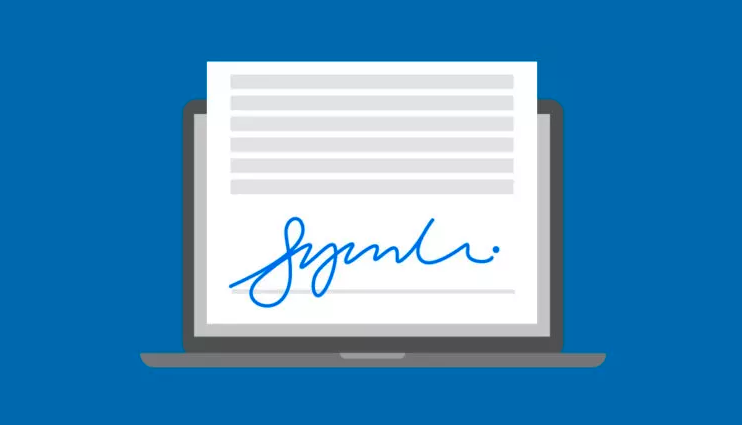Whether or not you’re a confident writer, legal writing is an important skill for any lawyer, in any practice area. From document management to in-office communication such as client letters, emails, internal memos, and more—solicitors handle a wide range of writing tasks.
Lawyers also need to ensure their writing style, tone, and voice in legal documents and communication are appropriate for a wide range of audiences such as courts, judges, and clients.
To be a skilled legal writer, lawyers need to be authoritative, credible, and persuasive in their writing. The following legal writing tips will help you improve your writing.
What is legal writing?
Legal writing involves crafting documents related to legal affairs, including briefs, contracts, and more. Its primary aim is persuasion, adapting tone and style according to the audience, whether for a judge with specialised legal language or a client with clear, understandable prose.
Whether you consider yourself a writer or not, legal writing is a necessary and important skill required for all legal professionals. From paralegals to lawyers to secretaries, legal writing applies to every legal professional.
Speak to a Clio expert
Ready to simplify your legal writing process and elevate your client experience? Book a demo with Clio.
- Effortless Document Management: Create, send, and easily track engagement letters.
- Enhanced Client Communication: Ensure clear, consistent communication from the outset.
- Comprehensive Practice Management: Access a suite of tools to optimise your entire practice.
Legal writing tips to help you get started

Tip 1: Understand your purpose
What is the first and arguably most important legal writing tip? Understand the purpose of your writing.
Ask yourself: Why are you writing this? What are you hoping to accomplish? What is the outcome you wish to achieve?
Writing a contract may serve to inform, while court documentation may serve to persuade, and client intake documentation may serve to evaluate. The document’s structure, tone, and voice will change depending on the purpose of your legal writing. Understanding that purpose will help you write better.
Tip 2: Understand your audience
Knowing who you’re writing for will help shape the structure and tone of your piece. A judge, another lawyer, or a client will have different experiences and expectations that inform how they read your work.
When it comes to your audience, keep the following in mind: their role and relationship to you, age, income, economic status, level of education, values, and how much they already know about what you’re writing about. This will help you determine the tone, style, and level of detail to include in your writing.
Tip 3: Do your research

Good legal writing requires researching and incorporating relevant legal precedents into your documents. Before you start writing, thoroughly read any material provided to understand the legal issues better.
Every case and document is different, but keeping some basic rules for legal research in mind will set you up for success. Some helpful legal research tools include the British and Irish Legal Information Institute (BAILII), EUR-Lex (for EU law) and InfoTrack, an efficient, pay-as-you-go search solution that fully integrates into your Clio Manage account.
Depending on the piece you’re writing, you may also find secondary sources such as legal dictionaries, law reports, and academic journals helpful in your research.
Make your mark online in minutes with our simple legal website builder
Easy-to-edit templates, no coding required—get your website up and running in the time it takes to make a cup of coffee.
You may like these posts
Tips for the legal writing process
Tip 4: Create an outline
One of the most helpful legal writing tips to improve your legal writing skills is organising your research into an outline. Starting with an outline will help keep your writing organised and focused.
A good outline starts by detailing the topic and putting the most important information at the top. Then, flush out the main points with the supporting details while making sure the transitions between points make sense.
Legal writing becomes much easier and less intimidating once you have an outline to help organise your ideas and guide your writing process.
Tip 5: Put words on the page

Even with a detailed outline, getting started can be difficult. Writer’s block is a real thing that even the most seasoned legal writers suffer from. But don’t worry about getting it perfect on the first try—that’s what editing and proofing are for.
On your first draft, focus on capturing the right information. Make sure the information is complete and sufficient, and the content flows nicely from one section to the next. Give yourself as many drafts as you need before your deadline. Also, give your writing some room to breathe by taking a break and coming back to it with fresh eyes.
Always remember that you can clean your writing up in the editing stage—you don’t have to get the formatting perfect on your first try.
Tip 6: Be aware of content structure
The best way to structure any piece is by writing from the top down. Start by showing the reader what you’re writing about and why, then provide the arguments to support your case.
Pick your best or most persuasive arguments to focus your writing on, then filter additional, supporting arguments thereafter. Use headings to break up sections and transition from one argument to the next, and start new sections with summary sentences. Where appropriate, it also may be helpful to use lists and bullets to make your writing scannable for the reader.
Tips to help you write better

Tip 7: Be clear
When writing any type of legal document, state your point directly and clearly within the first few sentences to help guide the reader along. Assume the reader has very little time or patience, that they hate to read, and that they’re only going to read the first 200 words. What you say in those 200 words will help them decide to continue reading.
A few other legal writing tips to keep in mind:
- Active voice: The subject did something, rather than something was done to them. E.g., “Wendy consulted with her lawyer” is an example of active voice, whereas “The lawyer was consulted by Wendy” is an example of passive voice.
- Avoid double-negatives: For example, “This is not, not the best way to write.”
- The Oxford comma: When listing items like judges, magistrates, and clients.
- Use adverbs and adjectives sparingly: Clearly, this is an exaggerated example.
- Consistent tenses: Past tense is most commonly used but sometimes present tense makes the most sense.
- Avoid split infinitives: For example, Gently push vs. push gently.
- Avoid gender-specific terminology: When in doubt, “they” is universal.
- No slang and hyperbole: This is inappropriate and unnecessary.
- Be accurate and specific: For example, use a specific date instead of “recently.”
Tip 8: Use jargon only when appropriate
Using jargon, including legal terms, is only appropriate in some contexts. For example, using too much “legalese” with a client who is not well-versed in specific legal matters may end up confusing them and muddling the conversation with unnecessary questions.
Legalese is the specific language used by lawyers and legal professionals. It is often complex and difficult for the average person to understand. This type of writing typically features complicated words, lengthy sentences, and outdated phrases, making legal documents confusing for those without legal training. Although legalese is intended to be accurate, it can be hard to interpret without legal knowledge. As a result, there is a growing movement toward using clearer, more straightforward language in legal documents.
What is legalese?
While in some documents, it’s completely appropriate (and sometimes even necessary) to use the correct jargon and terminology, since another solicitor, barrister or judge, will be your reader.
When appropriate, strive to use plain language in your legal writing while showing that you understand jargon and can present it in easy-to-understand ways for the reader.
How can I avoid using legalese in my legal documents?
To minimise legalese in your documents, try these seven practical strategies:
1. Simplify the terms: Replace complex legal jargon with simpler, everyday words. For instance, use “help” instead of “assist” and “if” instead of “in the event that.”
2. One idea per sentence: Limit each sentence to a single idea for better clarity. Break down long sentences into shorter, more digestible ones.
3. Clarify responsibility: Use active voice to make it clear who is performing the action. For example, instead of “Payment will be made by the client,” write “The client will make the payment.”
4. Update your language: Skip outdated phrases like “hereinafter” and “notwithstanding,” and opt for straightforward alternatives that are easier to understand.
5. Use lists: Present information clearly by using bullet points or numbered lists. This approach helps break down complex details into easily understood parts.
6. Get a fresh perspective: Have non-legal professionals review your documents to identify any unclear areas. Their feedback can highlight potential confusion.
7. Focus on understanding: Ensure your documents are accessible and easy to understand. Clear communication helps clients grasp their rights and reduces the risk of misunderstandings.
By following these strategies, you can create legal documents that are clearer and more accessible, benefiting both you and your clients.
Tip 9: Edit and proofread
The legal writing process doesn’t just stop when the piece is finished. One of the most common mistakes writers make is not budgeting for the editing phase—a thorough editing and review process takes time.
It’s always helpful to have somebody else edit and proofread your work, but you should be able to take care of the basics yourself. Master spelling and grammar basics—lawyers who present documents with spelling and grammatical errors will be seen as less credible and lacking in attention to detail.
Understandably, it can be difficult to catch spelling and grammatical errors immediately. Once you’ve read your document several times, you’ll usually glaze over your own mistakes. Some other helpful legal writing tips for the editing process include reading your writing aloud or reading it backwards to help hone your focus and spot errors you’d otherwise miss.
Tips to level up your legal writing
Tip 10: Use helpful tools and apps

No matter what medium or document you’re writing, all good writers should always use spell check at a minimum. Advances in writing technology have also made legal writing much easier. For example, writing apps like Grammarly and Ginger can help you catch grammar, spelling, and other language mistakes.
If you don’t have an editor always available to help proofread your legal writing (which most usually don’t), text-to-speech apps such as Natural Reader can help read your documents out loud. This will help spot errors and awkward passages.
While some of these services are free, many of them will have a paid version to unlock extra features. Consider investing in some of these paid versions if your job requires a lot of writing—it’s worth it to bring your legal writing skills to the next level.
Tip 11: Read other writers’ work
The most common piece of advice writers give to those looking to improve their writing skills is to read—this rings true for any kind of writing. To improve your legal writing skills specifically, find good legal and business writers and read their work. This could be legal documents, but also books, blogs, and articles.
By studying and understanding how others write and structure their pieces, you’ll get a feel for the general format of a legal document. You can then incorporate your unique ideas and writing style. You could also ask colleagues for examples of their work or join communities and forums.
Routinely review legal writing examples
Beyond reviewing others’ work, you can further your legal writing skills by reading writing examples. Below are some legal writing examples to support you:
Utilising a legal document template is another way to maintain consistency and have a blueprint for your writing.
Legal writing is an ongoing journey
As you embark on this legal content writing journey, remember, no one becomes a great legal writer overnight. Like with any craft, good legal writing is a skill and ongoing process that you build the foundation for and improve on.
The writing process is complex and extends beyond just putting words to paper. Researching, writing, and editing are all important skills for good legal writing. The more you practice writing, the easier it gets and the better your work will be over time.
Use the above writing tips as your starting point. Remember, always be open to and use feedback and constructive criticism.
Speak to a Clio expert
Ready to simplify your engagement letter process and elevate your client experience? Why book a demo with Clio?
- Effortless Document Management: Create, send, and easily track engagement letters.
- Enhanced Client Communication: Ensure clear, consistent communication from the outset.
- Comprehensive Practice Management: Access a suite of tools to optimise your entire practice.
We published this blog post in October 2024. Last updated: .
Categorized in: Business
Your Free Guide to Starting Your Own Law Firm
With information on everything you need to consider when setting up a law firm, it will give you the tools you need to get your new law firm started.
Download Now





